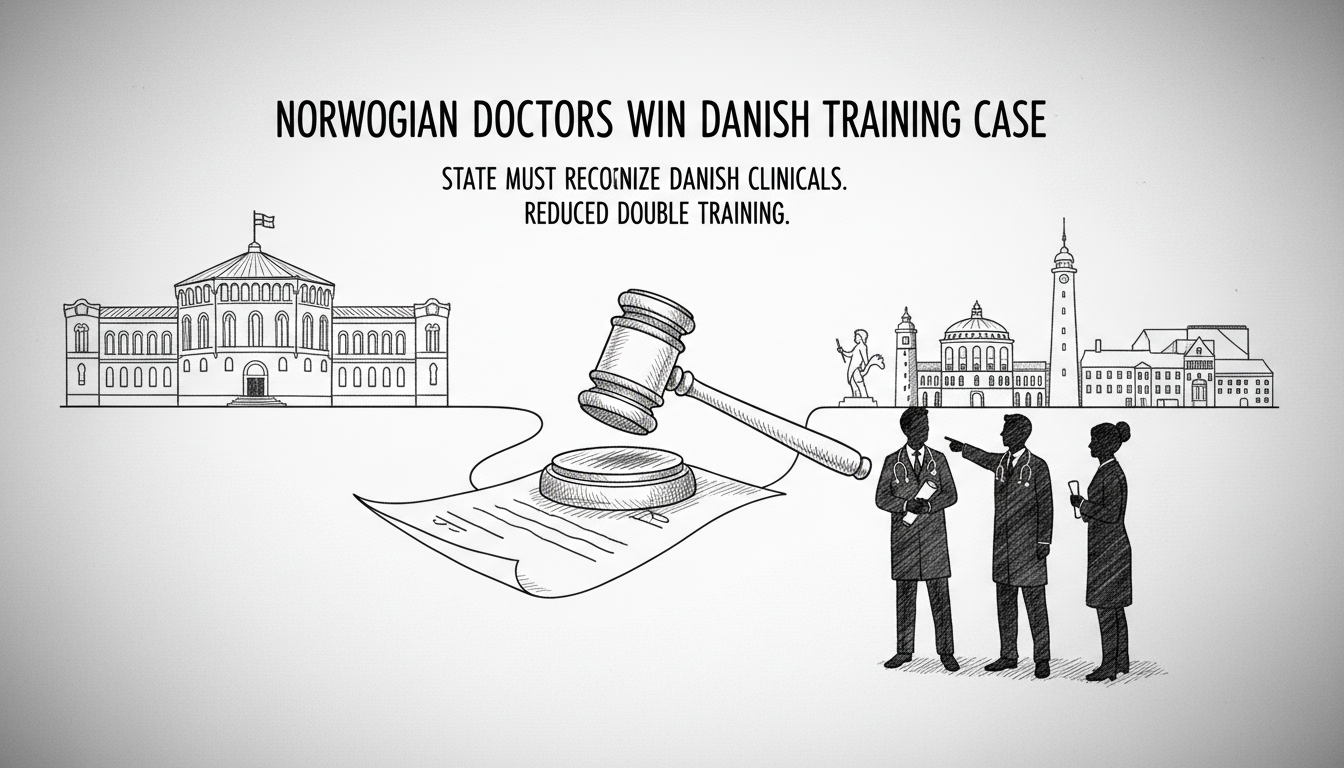A Norwegian court has ruled in favor of two doctors who challenged the government's rejection of their Danish medical training. The decision forces health authorities to reconsider whether Denmark's clinical foundation program can substitute for Norway's mandatory internship requirement. This case addresses a long-standing dispute about foreign medical qualifications in Norway's healthcare system.
The legal victory comes after physician couple Malene Laursen Schack and Asbjørn Sune Schack filed a lawsuit against the Norwegian State. They had previously appealed to the National Board of Health Personnel after their Danish training was rejected. The Oslo District Court declared the board's decisions invalid, creating a precedent for other internationally trained doctors.
Norway currently requires doctors who complete Denmark's Clinical Basic Training (KBU) to undergo LIS1, the Norwegian internship program. This creates what critics call double internship requirements. Doctors must repeat similar training they already completed abroad. The Danish KBU program typically involves six months in hospitals and six months in primary healthcare services. It closely resembles Norway's LIS1 structure.
Norwegian Medical Association President Anne-Karin Rime called the ruling a major victory. She said this outcome benefits both the affected doctors and the medical association, which has advocated for this change for years. The court decision now obligates the state to properly evaluate whether Danish KBU meets LIS1 learning objectives. Authorities must clearly justify any missing requirements if they still reject the Danish training.
This case highlights broader challenges in Nordic medical credential recognition. Despite similar healthcare systems and educational standards, cross-border qualification acceptance remains problematic. The ruling could influence how Norway evaluates medical training from other Nordic countries and the European Union.
For internationally trained doctors, this decision represents progress toward reducing bureaucratic barriers. Many foreign-educated physicians face lengthy requalification processes in Norway. This creates delays in entering the healthcare workforce during ongoing doctor shortages. The court's intervention signals that authorities must provide clearer justification for rejecting foreign medical education.
Norwegian health authorities now face pressure to establish transparent evaluation criteria for international medical training. The ruling suggests current assessment methods may lack proper documentation and consistency. This could lead to broader reforms in how Norway recognizes medical qualifications from other countries.
The immediate impact affects dozens of doctors with Danish KBU training now working in Norway. They may seek recognition of their qualifications without repeating Norwegian internship requirements. Long-term implications could extend to doctors trained in Sweden, Finland, and other EU countries seeking to work in Norwegian healthcare.
This legal development comes amid ongoing debates about healthcare workforce mobility in the Nordic region. While politicians often discuss creating seamless labor markets, practical barriers like this case demonstrate how qualification recognition remains challenging. The ruling pushes Norway toward aligning its medical credential recognition with broader Nordic cooperation goals.
